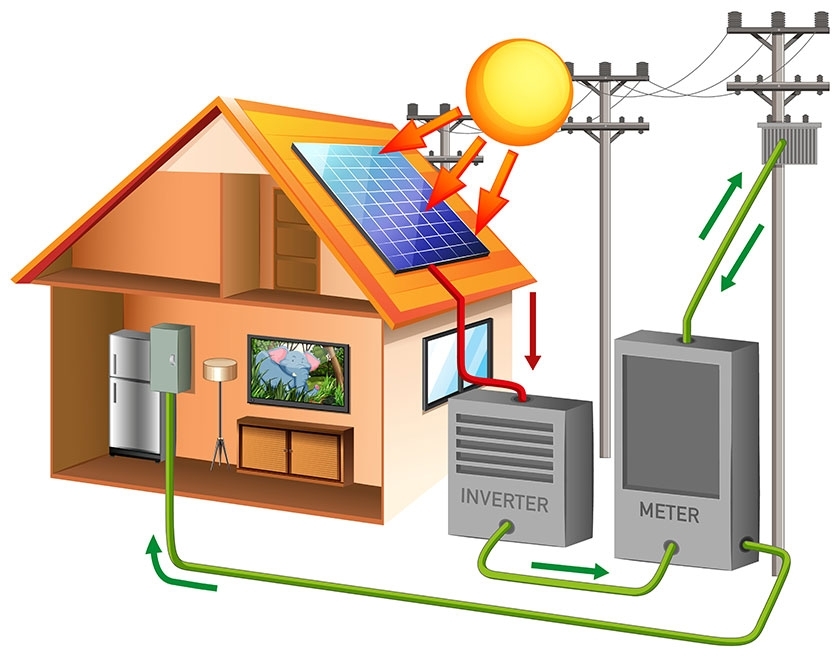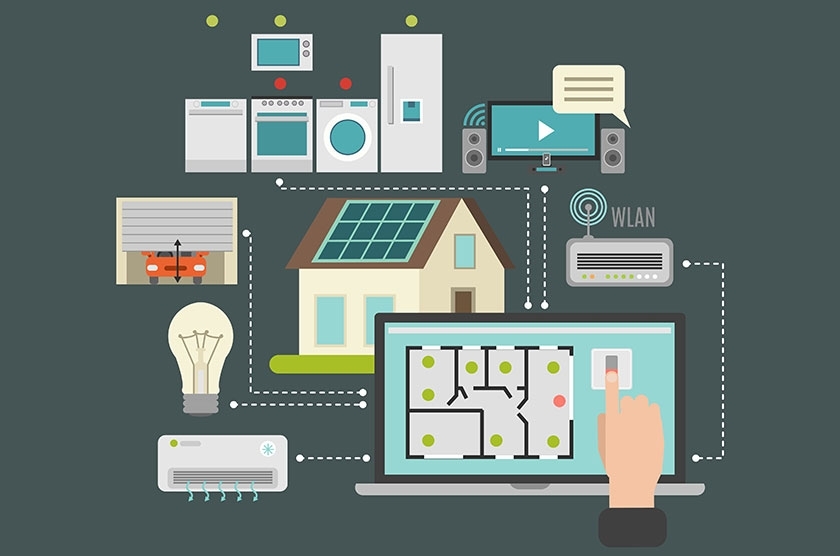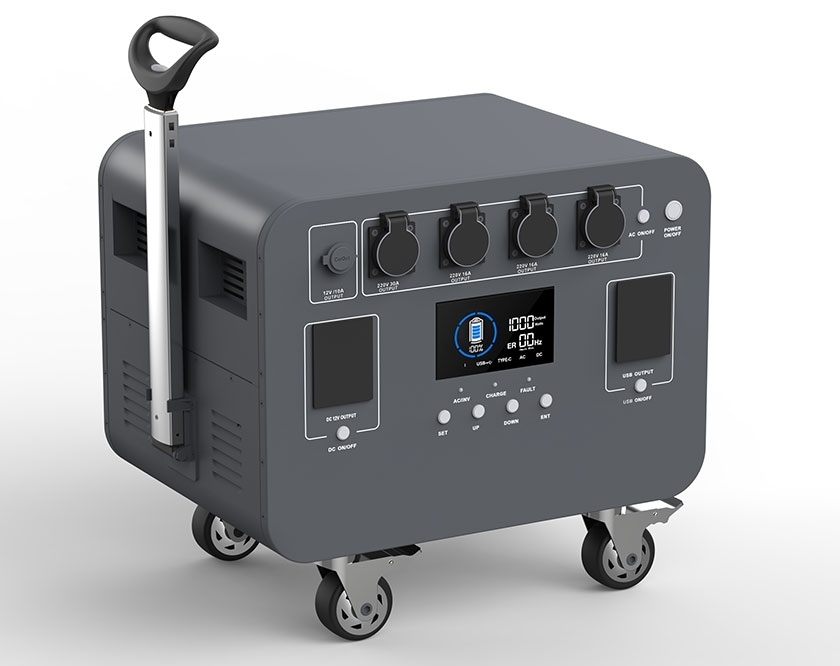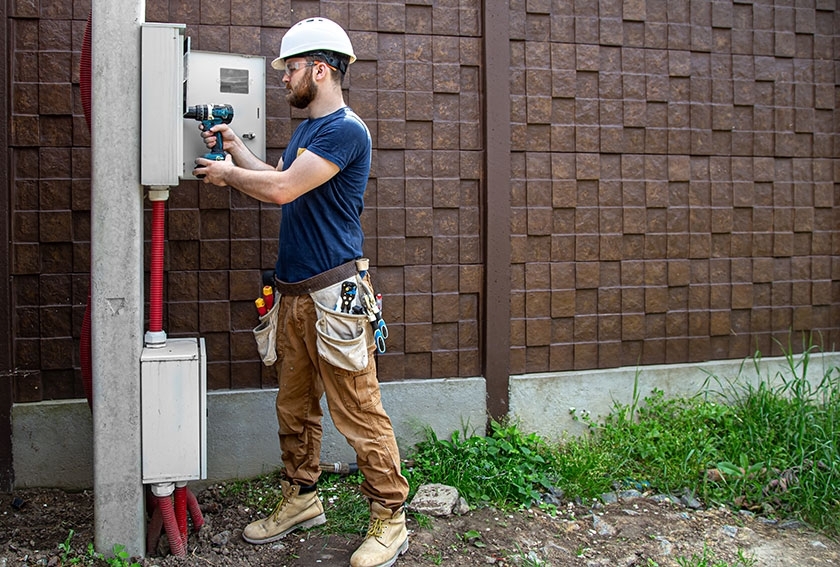Power outages can be a major inconvenience, especially if they last for an extended period of time. They can disrupt your daily routine, cause food to spoil, and even put your safety at risk. That's where a home backup generator comes in.
Home Backup Generator is a device that provides backup energy to your home appliances and devices in case of a power outage. Unlike standby generators, which are permanently installed and automatically detect a power outage and supply power when needed, backup generators are not permanent installations and are only meant to provide temporary power in instances when power fails.
Home backup generators come in various sizes and capacities, and can be portable or permanently installed. They are designed to automatically turn on when the power goes out, and turn off when the power is restored. This ensures that your home has a reliable source of backup power during emergencies.

Home backup generators follow a similar three-stage process as standard power supply chains, but with some notable differences.
■ Solar generation, which involves using photovoltaic solar panels to generate direct current (DC) electricity from sunlight during the day.However, when there is no sunlight or during poor weather conditions, solar generation stops, and the system relies on stored battery power.
■ Energy storage, where large lithium-ion batteries store the DC power generated from the solar panels during the day to use at night or during an outage. The longer the battery capacity, the longer the run time.
■ Inversion and power output, where an inverter converts the stored DC power to alternating current (AC) that is used to power loads or supplement grid power at typical home voltage levels (120/240 volts).

The benefits of home backup generator are numerous. Here are some of the key benefits:
The primary benefit of a home backup generator is that it provides power to your home during an outage. This means that you can continue to use essential appliances and devices, such as refrigerators, heaters, and medical equipment, even when the power is out.
A backup generator can help keep your home safe and secure during an outage. For example, it can power security systems, lighting, and other devices that help deter burglars and other intruders.
With a backup generator, you can avoid downtime and continue to operate your business or work from home during an outage. This can help you avoid lost productivity and revenue.
A backup generator can increase the value of your home, as it is seen as a valuable feature by many homebuyers.
Knowing that you have a backup generator can provide peace of mind during storms and other emergencies. You can rest assured that you and your family will have access to power when you need it most.
Home backup generators can also allow you to run essential appliances such as air conditioners, sump pumps, refrigerators, heaters, washers/dryers, and lights during a power outage. This can help keep your family comfortable and safe during an emergency. Furthermore, investing in a home backup generator can help make being without power more bearable and can even fuel some fun when not being used for an emergency. Home generators come in a variety of types and sizes, including inverter generators that are much quieter than conventional generators.

When choosing a home backup generator, there are several factors to consider. First, you should determine your power needs by making a list of the essential appliances and devices that you want to power during an outage, and calculate the total wattage required. This will help you choose a generator with the appropriate capacity. You should also consider the battery type, size and portability, noise level, brand and warranty, and installation costs.
The battery size will determine how long your system can power loads when not charging. Larger capacities like 800-3000Wh provide 12+ hours of run time but cost more and weigh more. Find the right balance for your needs. Only some home backup generators provide modified sine wave power, which is compatible with sensitive electronics. True sine wave inverters provide higher-quality power but at a higher cost. Choose the wave type that suits your specific loads.
More powerful systems, larger batteries and larger solar panels will result in heavier and larger units. Ensure you have means to transport and set up whatever system you choose. Compactness is one benefit of portability. You should consider the size of your home and the space available for the generator when choosing a size. If you plan to use the generator for outdoor activities or emergencies away from home, a portable generator may be a better option.
Backup generators can be noisy, so you should consider the noise level when choosing a generator. If you live in a densely populated area, you may want to choose a generator with a lower noise level.
You should choose a reputable brand with a good warranty when choosing a backup generator. This will ensure that you have access to support and repairs if needed.
Backup generators require professional installation, so you should consider the cost and availability of installation services when choosing a generator. You may need to hire a professional electrician or contractor to install the generator, which can add to the overall cost.

The cost of a home backup generator can vary depending on several factors, such as the size, battery type, and brand. Home backup generators range from $500 up to $3000 or more for higher power systems with larger battery capacities. Determine your maximum budget to find alternatives that suit your needs and funds. Standby generators, which are permanently installed and can power your entire home, can cost anywhere from $5,000 to $25,000 or more, depending on the size and features. Installation costs can also vary depending on the complexity of the installation and the location of the generator.
A home backup generator is a valuable investment for several reasons. Here are some of the key reasons why you might need a home backup generator:
■ Power outages: Power outages can occur for a variety of reasons, such as severe weather, equipment failure, or grid overload. A home backup generator can provide power to your home during an outage, ensuring that you have access to essential appliances and devices.
■ Medical needs: If you or a family member has medical needs that require electricity, a backup generator can be a lifesaver. It can power medical equipment, such as oxygen machines or dialysis machines, during an outage.
■ Home security: A backup generator can help keep your home secure during an outage by powering security systems, lighting, and other devices that deter burglars and other intruders.
■ Business continuity: If you work from home or run a business from your home, a backup generator can help you avoid downtime and continue to operate during an outage.
■ Comfort and convenience: A backup generator can provide comfort and convenience during an outage by powering essential appliances, such as air conditioners, heaters, and refrigerators.
Overall, a home backup generator is a valuable investment that can provide peace of mind and ensure that you have access to power when you need it most.
A home backup generator is a valuable investment that can provide many benefits to homeowners. It can provide reliable backup power during emergencies, protect your home and belongings, and allow you to run essential appliances and devices during a power outage. By considering your power needs and other factors, you can choose a backup generator that meets your needs and provides reliable backup power during an outage.
What size generator do I need for my home?
The size of the generator you need depends on your power needs. You should make a list of the essential appliances and devices that you want to power during an outage, and calculate the total wattage required. This will help you choose a generator with the appropriate capacity.
How long can a home backup generator run?
The runtime of a home backup generator depends on the size of the generator and the battery source. A typical standby generator can run for several days on a full tank of fuel, while a portable generator may only run for a few hours.
Do I need a professional to install a home backup generator?
Yes, backup generators require professional installation. You may need to hire a professional electrician or contractor to install the generator, which can add to the overall cost.
How do I maintain my home backup generator?
Regular maintenance is important to ensure that your backup generator is ready to go when you need it. You should follow the manufacturer's recommended maintenance schedule, which may include oil changes, filter replacements, and other tasks.